Blog Details


Understanding Phobia: When Fear Takes Control-By Dr. Biju Varghese | Consultant Psychologist
Everyone feels afraid at times — it’s a natural emotional response to danger. But when fear becomes excessive, irrational, and disruptive to daily life, it might be more than just fear — it could be a phobia. Phobias are among the most common mental health issues and can significantly impact a person’s well-being and functioning.
In this blog, we’ll explore what phobias are, how they develop, their types, symptoms, and available treatments.
What is a Phobia?
A phobia is an intense, persistent, and irrational fear of a specific object, situation, or activity that poses little or no real danger. Unlike ordinary fears, phobias lead to avoidance behavior and distress that can interfere with daily activities.
Phobias are classified as anxiety disorders and often begin in childhood or adolescence, though they can develop at any age.
Common Types of Phobias
Phobias are generally divided into three main categories:
Specific Phobias: Fear of a particular object or situation, such as:
Animals (e.g., dogs, snakes, spiders)
Natural environments (e.g., heights, storms, water)
Medical procedures (e.g., needles, blood)
Situational (e.g., flying, elevators, enclosed spaces)
Social Phobia (Social Anxiety Disorder):
An intense fear of social or performance situations due to fear of embarrassment or judgment.
Examples: Public speaking, eating in front of others, meeting strangers.
Agoraphobia:
Fear of being in situations where escape might be difficult or help unavailable, often leading to avoidance of crowded places, public transport, or even leaving home.
Symptoms of Phobia
Phobias can trigger a range of physical and psychological symptoms, such as:
Rapid heartbeat
Shortness of breath
Trembling or shaking
Sweating
Nausea or dizziness
Panic attacks
A strong desire to flee the situation
Avoidance behavior that interferes with life
What Causes Phobias?
The exact cause of phobias is not always clear, but several factors can contribute:
Genetics: A family history of anxiety disorders may increase risk.
Traumatic Experiences: A frightening or negative experience related to a specific object or situation.
Learned Behavior: Observing others (especially parents) reacting fearfully can influence behavior.
Brain Functioning: Differences in brain chemistry and function may play a role.
Impact of Phobias
Untreated phobias can significantly reduce quality of life. They may:
Limit educational and career opportunities
Cause social isolation
Lead to other mental health issues like depression or substance abuse
Prevent individuals from performing basic daily tasks
Treatment Options
The good news is that phobias are highly treatable. Common approaches include:
Cognitive Behavioral Therapy (CBT):
Helps identify and challenge irrational thoughts and gradually face fears through exposure.
Exposure Therapy:
A form of CBT that gradually introduces the feared object/situation in a safe, controlled way.
Medication:
In some cases, anti-anxiety or antidepressant medications may be prescribed to reduce symptoms.
Relaxation Techniques:
Breathing exercises, mindfulness, and progressive muscle relaxation can help manage physical symptoms of anxiety.
Hypnotherapy and Virtual Reality Exposure Therapy (in some settings) can also be useful.
When to Seek Help
If fear is interfering with your life, relationships, work, or health, it’s important to seek professional help. A trained psychologist can help identify the phobia and tailor a treatment plan that works best for you.
Final Thoughts
Phobias are not a sign of weakness or failure — they are a form of anxiety that many people experience. With the right support and treatment, it is entirely possible to overcome a phobia and live a fuller, freer life.
Need Help?
If you or someone you know is struggling with a phobia, don’t hesitate to reach out. I offer professional psychological counseling tailored to individual needs — including effective, evidence-based treatment for phobias and anxiety.
Contact: 9400776362
Website: https://www.mindcurepsychological.com/

